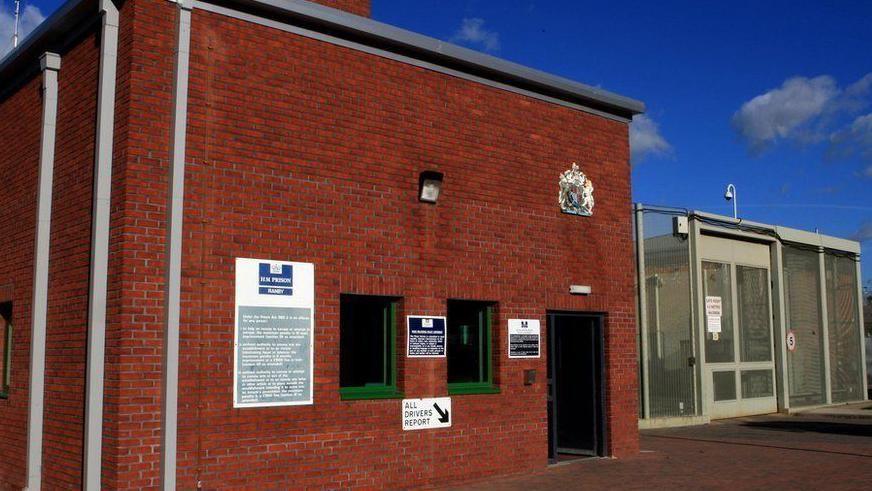Drugs and mouldy cells at prison, report says

Drones were being used to bring quantities of drugs into the prison, the report said
- Published
Drugs, along with "dilapidated and dirty" accommodation, mean inmates at a prison in Nottinghamshire lead a "pretty bleak existence", inspectors have found.
HM Inspectorate of Prisons found 23% of prisoners at Ranby tested positive for drugs and a quarter said they had developed a drug or alcohol habit while serving their sentence.
Some accommodation blocks were lacking basic furniture and had rubbish and food scattered in communal areas.
The report also found outcomes for the 1,087 prisoners were "not sufficiently good" in relation to four "healthy prison tests" - safety, respect, purposeful activity and preparation for release.
HMP Ranby, a men's Category C training and resettlement prison, was inspected between 10 and 20 February.
The report said the drugs problem required "immediate attention".
"The influx of drones bringing large amounts of contraband into this East Midlands Category C prison was affecting outcomes for prisoners in many areas," Charlie Taylor, chief inspector of prisons, said.
"Illicit drugs were the cause of poor attendance to activities and levels of violence that were now higher than most similar prisons."
In a survey, 61% of inmates said it was easy to get hold of illicit drugs.
Prisoners said they struggled to access basic items such as bedding, cleaning materials and clothing.
Poor condition
The standard of some living areas was also criticised.
"The 700 living on house blocks one to three and five had a pretty bleak existence, living in accommodation that was now badly dilapidated, and with many cells lacking basic furniture and almost no self-cook facilities," Mr Taylor said.
"By every measure, things were worse for these men, the regime was much more limited, cell bells took longer to be answered and there were more drugs available."
Many cells were discovered to be in poor condition containing damaged sockets, sinks and toilets, with many suffering from mould.
The report also found that too many prisoners living in house blocks one to three were not engaged in meaningful activity.
Leaders were praised for working hard to stop drugs from getting into the prison, with the report acknowledging there had been some arrests and convictions.
Get in touch
Tell us which stories we should cover in Nottingham
Follow BBC Nottingham on Facebook, external, on X, external, or on Instagram, external. Send your story ideas to eastmidsnews@bbc.co.uk, external or via WhatsApp, external on 0808 100 2210.
- Published14 February
